|
It was 1942, and the world was at war.
The December 1941 entry of the United States into what later became known as World War II made everything in America more intense if not always faster. The frantic need for success in a nation unprepared for war often goaded the U.S. Congress to do what it previously would not. On May 14, 1942, Congress approved the establishment of the Women’s Army Auxiliary Corp (WAAC). The following day, President Franklin D. Roosevelt signed the bill into law. On May 16, Oveta Culp Hobby was sworn in as the first director of the WAAC. Little did the people of Iowa know that Fort Des Moines, located on the south side of their capital city, would become the site of the first training center for the newfangled WAAC. The whole nation was watching.
0 Comments
Updated: 2/17/2023
Are you looking for time capsules back into the 20th century? Advertising is a perennial repository of culture brimming with hints of "the way it was." Some of my favorite ads recruit women to the Women's Army Corps (WAC). I started collecting WAC advertisements while writing my novel, Women's Company - The Minerva Girls, about WACs in the 1960s and 1970s. I invite you to take a look at two ads that I added recently to my collection. Both ads appeared in popular women's magazines.
Advertising is a perennial repository of culture. Consider the advertisements used by the U.S. Army to recruit women during World War II. You’ll find a wealth of hints regarding not only the culture of the Army, but also the American public. As you look at the ads I’ve selected, ask yourself, “Who’s in the ad? Who’s left out? Are they depicted in an accurate or idealized fashion? Why or why not?”
Nine Movies? Plus One.
(updated 5/13/2019; 11/10/2022; 2/17/2023; 7/4/2023) Memorial Day is in May in the U.S., and that makes this month a good time to catch up on military movies. Since my novel, Women’s Company – The Minerva Girls, is about three young women in the Women’s Army Corps (WAC) in the late 1960s and early 1970s, I’ll focus on ten movies that feature women in the WAC. Many of the selected films not only cast well-known actors of the period, but also stars such as Tony Curtis, Cary Grant, William Holden, Janet Leigh, Rosalind Russell, Ann Sheridan, Lana Turner, and Richard Widmark. Most of the stories share an underlying theme: how Army service changes a person. Not until July 1, 1943, when President Franklin Roosevelt signed a compromise bill passed by the U.S. Congress to establish the Women’s Army Corps (WAC) giving women full military status.
Minerva is the ancient Roman equivalent of the Greek goddess Pallas Athene, the goddess of wisdom, warfare, and handicrafts. Unlike the god of warfare, Mars, she had nothing to do with bloodlust and brute animal strength. When Minerva showed up on the battlefield, victory came through courage, sound strategy, and military skill. After the fighting was over, she led through victory to peace and prosperity. Not surprisingly, the WAC chose her--in her Greek form as Pallas Athene--to be their insignia, and I chose her to be in the title of my novel Women's Company - The Minerva Girls. What's So Important About Insignia? The armed forces take insignia quite seriously. The creation of insignia for the WAC initially stumped designers. Why? Because insignia usually depict the function of the corps concerned and, when The Women's Army (and at that time Auxiliary) Corps was created in 1942, no one knew exactly what work the women would do. According to historian Mattie Treadwell, an early draft for the insignia tried to resemble a busy-bee-like insect. In the eyes of the WAAC director, however, it looked like a bug, and she "had no desire to be called the Queen Bee." When designers came up with Pallas Athene--a goddess associated with "a variety of womanly virtues and no vices either womanly or godlike"--she won hands down. 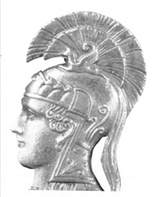 What Does the Insignia Look Like? A profile of the head of the Greek goddess, Pallas Athene, was selected for the WAC's lapel insignia, together with the traditional U.S. cut out for officers, and on discs for enlisted women. |
AuthorLynne Schall is the author of three novels: Women's Company - The Minerva Girls (2016), Cloud County Persuasion (2018), and Cloud County Harvest (November 2022). She and her family live in Kansas, USA, where she is writing her fourth novel, Book 3 in the Cloud County trilogy. Archives
October 2023
|
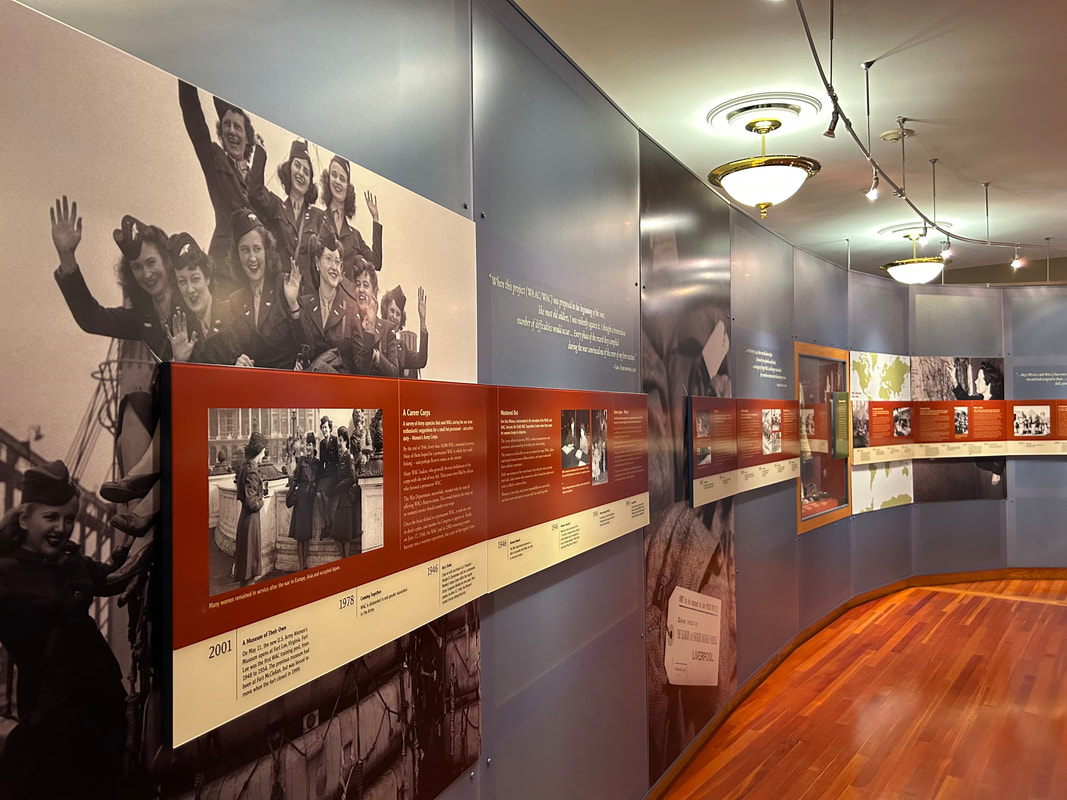
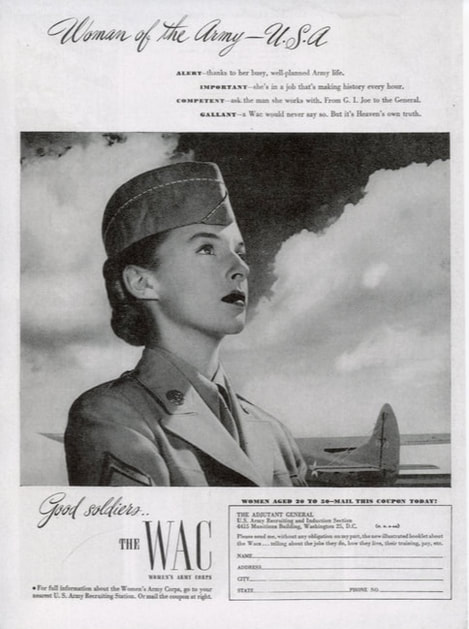
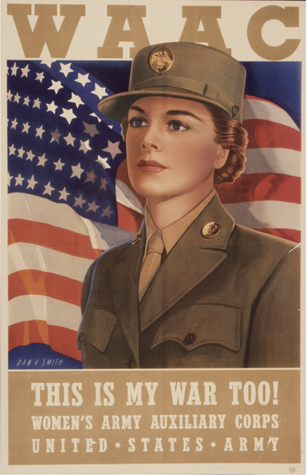

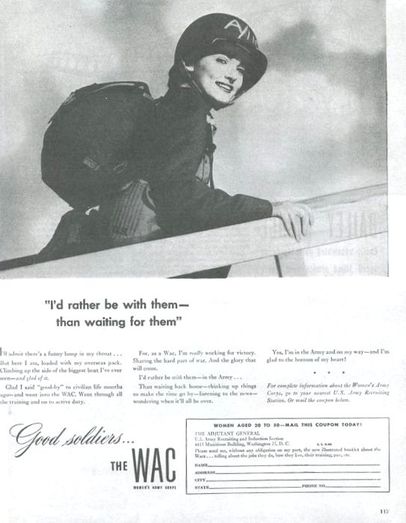

 RSS Feed
RSS Feed

